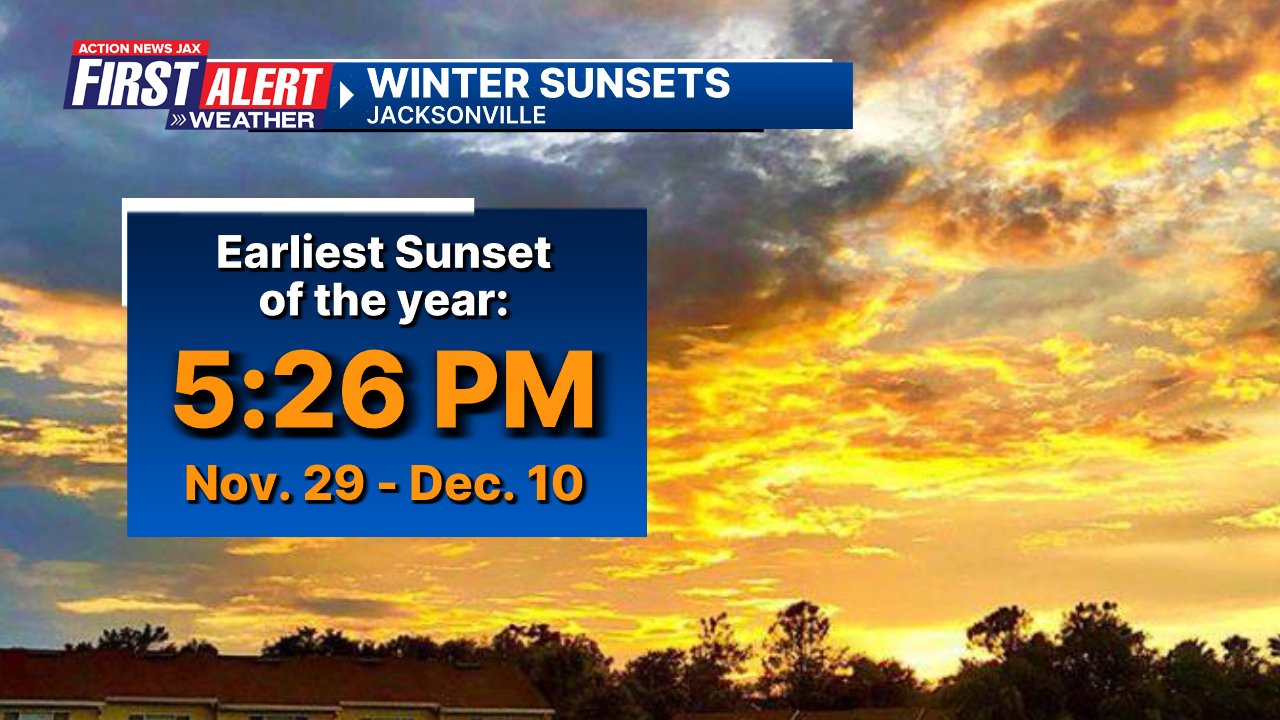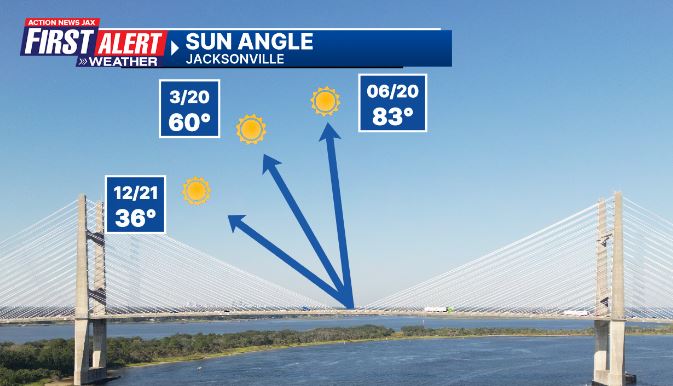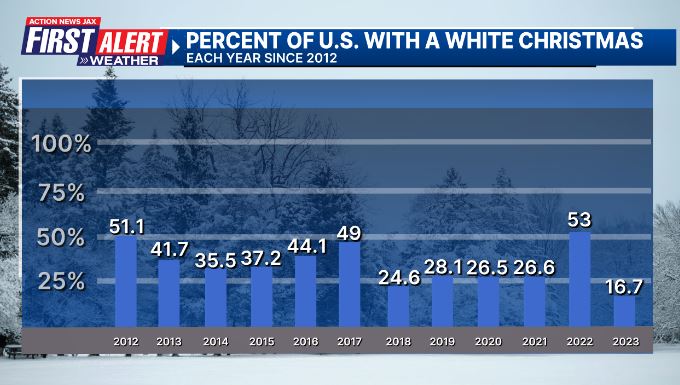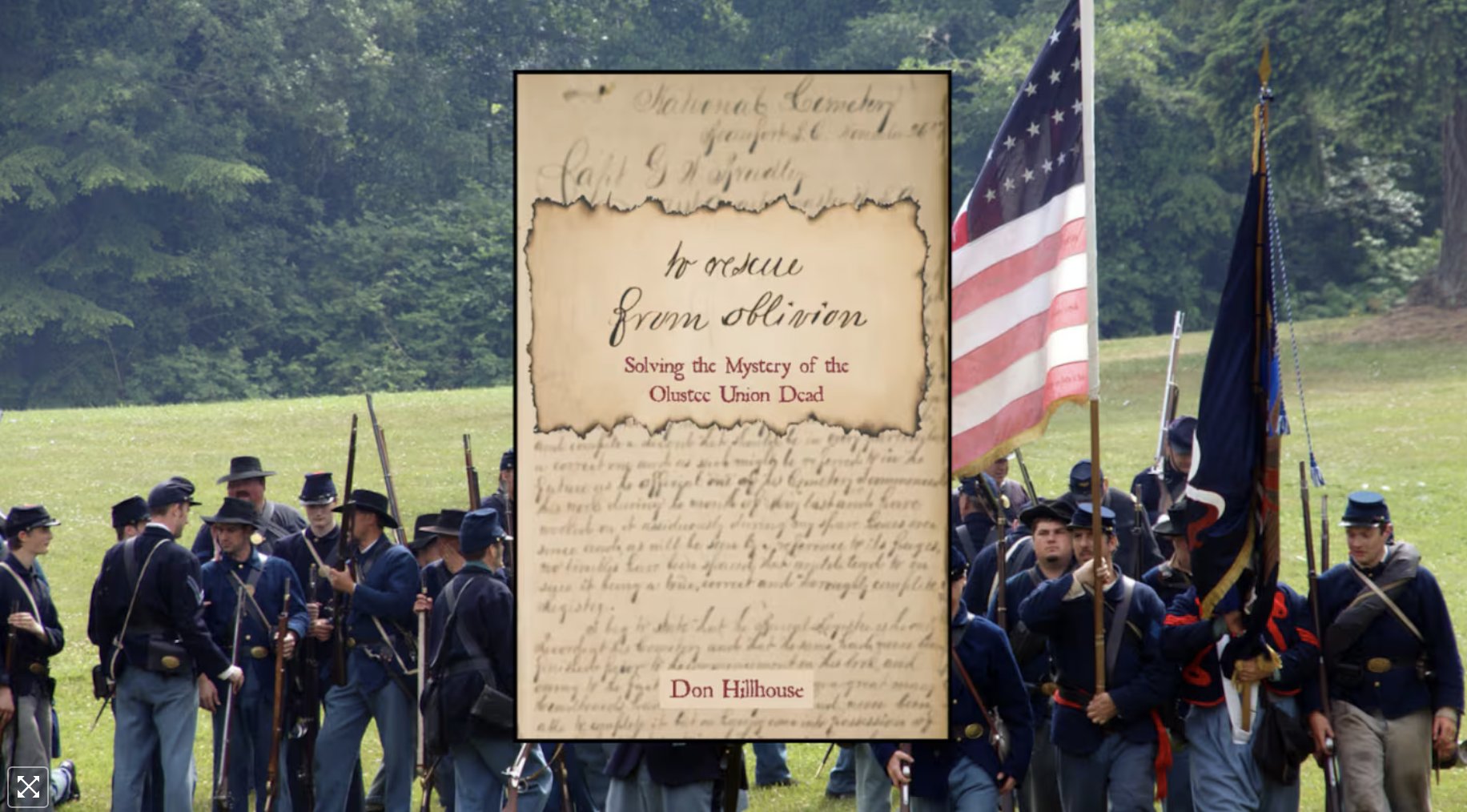JACKSONVILLE, Fla. — First Alert Neighborhood Weather Network. Scan below &/or click * here *:
We are past the latest sunset of the year in Jacksonville! We will now slowly gain some time on the sunset... to 5:36pm by the end of Dec. *But* we still lose time on the sunrise. The latest sunrise - at 7:24am - runs from Jan. 3 - 16th. Then we’ll start to gain time on “both ends” as we steadily gain daylight the rest of the winter through spring into early summer. And the “short days” correspond to a low sun angle over the Northern Hemisphere during the winter (tile of the earth is away from the sun).
Solar probe about to make history! The Parker Solar Probe was launched Aug. 12, 2018. The probe was the first spacecraft to fly through the upper atmosphere - corona - of the sun in 2021. On Christmas Eve Parker will make it closest approach to the sun.
From NASA:
Making history: On Dec. 24, NASA’s Parker Solar Probe will come within 3.8 million miles of the Sun’s surface. Hold on to your hat! At its closest point to the Sun, Parker Solar Probe will be traveling at 430,000 mph, making it the fastest-moving human-made object in history. Blazing hot: Parker Solar Probe’s heat shield will be facing temperatures over a million degrees Fahrenheit, but keeps the spacecraft at room temperature
On a mission to “touch the Sun,” NASA’s Parker Solar Probe is set to make history on Dec. 24 by making its closest dive through the Sun’s corona — the Sun’s upper atmosphere. Parker will come just 3.8 million miles from the Sun’s surface, making it the first human-made object ever pass this close to the Sun. Parker’s closest approach is happening during the period of solar maximum — the phase of highest activity for our Sun — opening opportunities for some exciting science! The spacecraft will withstand blazing hot temperatures over a million degrees Fahrenheit while keeping the probe’s instruments at room temperature around 85 degrees. As if that wasn’t impressive enough, at its closest point to the Sun, Parker will be traveling at an astounding 430,000 mph, making it the fastest-moving human-made object in history. That’s fast enough to get from Philadelphia to Washington, D.C., in one second!


‘Tis the season for a White Christmas. The graph below shows the % of the U.S. that had at least an inch of snow on the ground over the last 12 years. The “whitest” - 2012 & 2022.
An interesting local Civil War story from North Central Fl. & author Don Hillhouse “To Rescue From Oblivion: Solving the Mystery of the Olustee Union Dead”. The Action News Jax brief story is * here *.
A “cliff notes” version of the paperback:
In 1866, a mass grave was created on the Olustee Battlefield in Baker County, Florida, site of the February 1864 battle. It contained the skeletal remains of a reported 125 Union dead that had been found scattered over the site after being uprooted from their shallow graves by animals.
The last known sighting of a marker placed there by a U.S. Army detachment that established the grave was in 1873. The mass grave has been lost to history ever since.
Through newly discovered documents found at the National Archives, this book seeks to answer the lingering question of what became of these Union dead and details how Olustee fits into the larger picture of the creation of the national cemetery system where some 300,000 Union war dead were reburied.
Appendices include info on other Olustee Union dead, new findings on some of the Union dead from Ft. Wagner on Morris Island, S.C., weather conditions for the Battle of Olustee, commentary on how historians have written about two controversial aspects of Olustee, and the question of a Union monument at Olustee.
The book is available on Amazon * here *. I had the opportunity to do a small amount of weather interpretation for the book. The period in question is in mid February & temps. were very cold. Given the limited amount of real time & accurate weather data from the 19th Century, my more specific analysis follows the data below:
Deck Log of USS Pawnee in St. Johns River in February 1864 Date Time Barometer Temp Wind Feb 19
12-4 am 30.75 38° N Force 4
Showers of Hail 4-8 am 30.89 34° NNW Force 4
8-12pm 30.90 41° Strong Gales from N
12-4pm 30.80 37° Strong Gales from N
4-6pm 30.80 37° Lt. Breeze from N
6-8pm 30.90 37° Lt. Breeze from N
8pm-12am 30.81 31° NW Force 2 Feb 20
12-4am 30.80 39° NW Force 2 4-8am 30.81 32° NNW Force 3
8-12pm 30.94 48° NNE Light
12-4pm 30.82 46° 4-6pm 30.80 49° NE Force 1
6-8pm 30.80 41° ENE
8pm-12am 30.73 39° 0 Feb 21
12-4am 30.66 35° NNW Force 2
4-8am 30.70 37° W Force 1
8-12pm 30.75 56° Lt. Breeze from W
12-4pm 30.66 56° SE Force 1
4-6pm 30.67 53° Lt. Breeze from SW
6-8pm 30.70 50° Lt. Breeze from W
8pm-12am 30.70 44° Lt. Breeze from W.
Force MPH 0 0-1
1 1-3
2 4-7
3 8-12
4 13-18
5 19-24
Gale 39-46
My reply to Don, the author & my analysis:
If this was on the St. Johns River, the temp. was likely colder in MacClenny & Olustee – more inland + away from the water. Given the winds were generally from some kind of westerly direction (also some N & SW), I suspect the temps. may have been at least 3-5 degrees lower in Baker Co.
The “strong gale” on Feb. 19th with temps. 37-41 degrees F (very cold for this area even in the winter) would have translated to a wind chill somewhere in the vicinity of 18-23 degrees F.
I suspect the “showers of hail” on Feb. 19th was either snow or graupel or a mix… or – even more likely – sleet.
You’re correct about the abnormally high barometric pressure readings. While I suspect high pressure was in control of the weather pattern (given winds & temps.- with low pressure somewhere to the east), even those readings would be abnormally high. Consider the all-time highest barometric pressure reading in Jacksonville is 30.72″ on Jan. 19th, 1957 (Jax weather records go back to 1871). So I imagine there may have been some kind of instrumentation issue or – as you say – a calibration problem.












